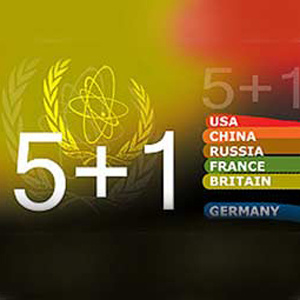Challenges and Opportunities of the Geneva Talks
Iran must ask for detailed commitments and necessary objective guarantees

From the hot summer of 2003 to the summer of 2008, Iran’s negotiations with IAEA, the European Union, Security Council members and NAM have turned into a lengthy diplomatic story.
Drunk with the victory in Iraq, Americans flexed their muscles for their enemies, but today at the end of its term, the neo-conservative government is gloomily waving goodbye leaving behind bitter experiences for the world and the American nation.
The story of Iran’s nuclear case can teach us –and the future generations- many lessons. Iran’s extensive cooperation with IAEA, painstaking negotiations with the three Europeans countries and their strategic mistake in missing unique opportunities, IAEA contradictory reports, the NIE report, UNSC resolutions, provocative sanctions by Europeans and some other industrial countries and the unclear modality plan were the important events during these years.
After all the ups and downs, Iran and 5+1 have exchanged their packages. The Supreme Leader has set the strategy for negotiators and there is no doubt that with resistance, serenity and a spirit of cooperation rights of the Iranian nation will be preserved.
But there are some points that call for our vigilance, especially in the current situation, that after months of talks the Americans are going to attend the negotiations. Firstly, there are some problems with Iran-IAEA cooperation. The last year agreement between Iran and IAEA, called the modality plan, raises serious questions. Why has IAEA –after it stated that investigations about the civil aspect of Iran’s nuclear program have ended- focused on alleged studies and targeted Iran’s defensive and security affairs? Why are IAEA’s recent reports nonspecific and entail questions beyond its responsibility? Why has 5+1 presented only an outline of its proposals, which lack commitments and detailed guarantees?
However, United States’ shift is clear as the negotiations have started. Although Americans claim that their stance hasn’t changed, and they’re going to attend the talks just as observers, we can guess that the shift has occurred with Bush’s approval and after sidelining neo-cons.
It seems that the United States follows four goals by taking part in the nuclear talks:
a) Demonstrating unanimity among 5+1 members;
b) Showing that they support diplomacy;
c) Showing that there is no way other than further sanctions if the negotiations fail;
d) Helping McCain and precluding Obama’s chance to negotiate with Iran.
U.S. presence in Geneva talks is both an opportunity and a challenge; an opportunity since it increases the possibility of agreement, and a challenge because if Americans prove tough and the negotiations fail, it paves the way for UN Security Council’s further measures. 5+1 has demanded preconditions for the next stages of negotiations which is halting uranium enrichment or temporary freeze of its development programs, but the Iranian side must ask for detailed commitments and necessary objective guarantees.

